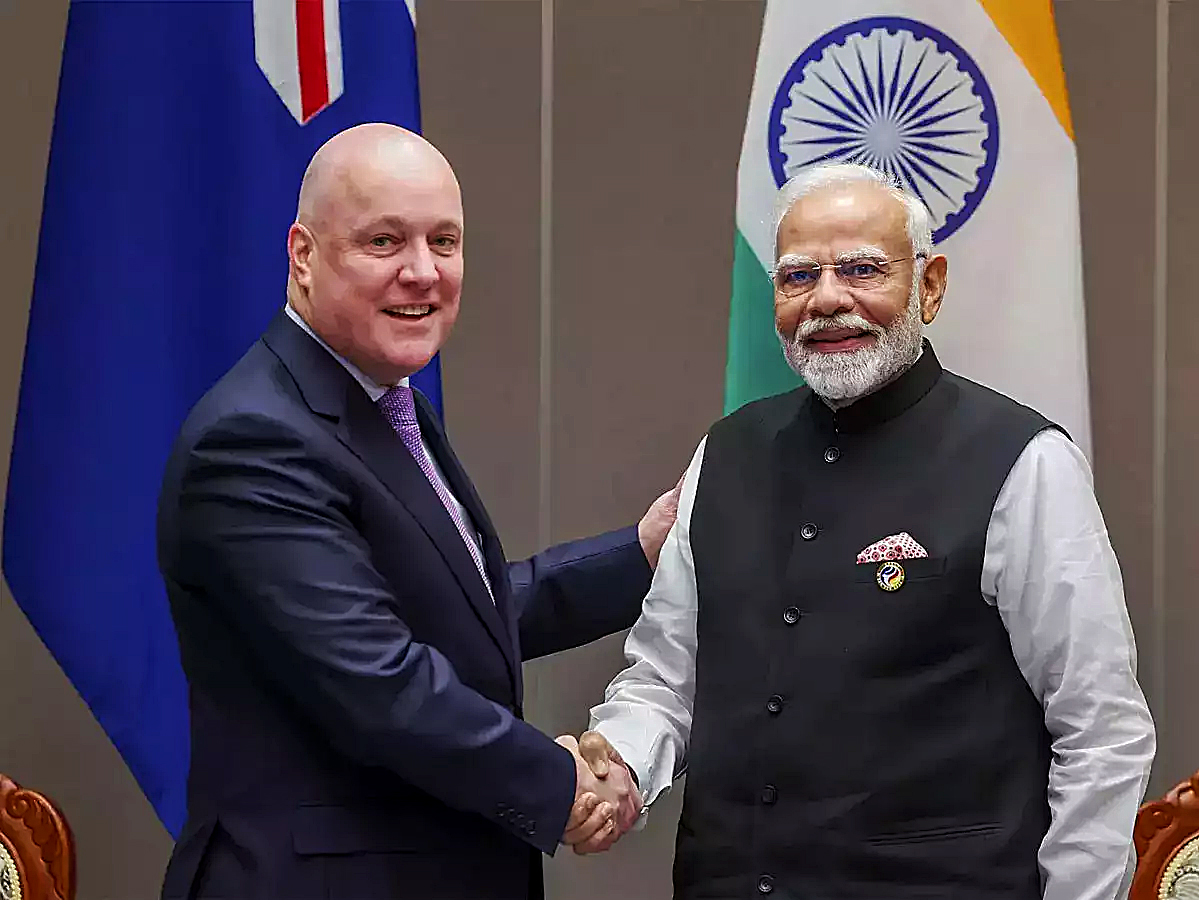New Zealand sends its largest-ever delegations to India on 15 March to strengthen trade and security ties with world’s fastest-growing economic powerhouses. Prime Minister Christopher Luxon revealed that the six-day trip, which will take him to New Delhi and Mumbai, is part of a broader effort to enhance New Zealand’s relationship with India. Luxon’s visit begins on Saturday, underscores the importance of India as a strategic partner, both economically and politically, for New Zealand in the coming years.
During his visit, Luxon is slated to meet with Indian Prime Minister Narendra Modi and participate in the prestigious Raisina Dialogue in New Delhi. As India’s premier defence and security forum, the Raisina Dialogue serves a platform for Luxon to underscore New Zealand’s commitment to improving bilateral relations with India. The event, which attracts policymakers and thought leaders from across the globe, will give Luxon the opportunity to address a wide array of issues related to defence and security. By delivering the keynote speech, Luxon aims to position New Zealand as a reliable and engaged partner in the Indo-Pacific region.
Prime Minister Luxon emphasized the immense potential that exists for New Zealand to deepen ties with India. He pointed out that the world’s most populous country, is on track to become the third-largest economy globally by 2030. With its rapidly growing middle class, India presents vast opportunities for trade and investment. However, despite these prospects, New Zealand’s current trade with India remains surprisingly low, with only 1.5% of New Zealand’s exports directed towards the country. Luxon acknowledged that the relationship between New Zealand and India had been largely underdeveloped in recent years, with little to no momentum before his government came into power.
Luxon’s commitment to strengthening this relationship comes with high expectations. During the 2023 election campaign, he promised that his government would negotiate a free trade agreement (FTA) with India within its first term. However, despite this bold pledge, formal trade negotiations have yet to resume, and the opposition has raised doubts about the feasibility of meeting this deadline. When pressed on the matter, Luxon reaffirmed his commitment to striking a trade deal with India, though he clarified that his focus is on creating a broader and more comprehensive economic partnership with the country. One of the most significant challenges in advancing the trade relationship with India is the issue of dairy exports. New Zealand’s dairy industry is a key sector of its economy, but India’s dairy market is dominated by small-scale rural farmers who are concerned that large-scale imports from New Zealand could disrupt their livelihoods. This challenge was also a stumbling block in past trade negotiations between the two nations.
While dairy will be a contentious issue in trade discussions, Luxon is determined not to shy away from addressing it. He pointed out that India is set to become the world’s third-largest economy very soon, and it would be “insane” not to try to engage with such a significant market. Luxon believes that a balanced and well-negotiated deal could benefit both nations, providing economic opportunities in other areas, such as technology, services, and infrastructure.
Luxon’s visit also comes against the backdrop of growing concerns in New Zealand over China’s increasing assertiveness in the Indo-Pacific region. Recently, China’s military presence in the Tasman Sea, where it conducted live-fire exercises, raised alarm in New Zealand and other countries in the region.
In response, Luxon views India as a key partner in promoting security and stability in the Indo-Pacific. While the two countries share similar security concerns, Luxon acknowledged that there may be differences when it comes to the war in Ukraine. India has maintained a largely neutral stance on the conflict, refraining from condemning Russia’s actions. Luxon, however, remains firm in New Zealand’s position, which is unwavering in its support for Ukraine.
Luxon’s trip to India, will include meetings with Indian business leaders, government officials, and members of the Indian diaspora in New Zealand. This high-level delegation will also include key ministers, senior officials, and business representatives.
The visit aims to reaffirm the long-standing relationship between New Zealand and India which have historically been warm, focusing on strengthening economic, security, and cultural ties.
New Zealand’s Indian diaspora, which is around 300,000 people, plays a vital role in fostering closer ties between the two countries. Additionally, the growing number of Indian students in New Zealand, currently around 8,000, pursuing higher education in diverse fields such as information technology, hospitality, and engineering, further contributes to the strengthening of people-to-people connections.
The 80-member strong delegation accompanying the Prime Minister includes a group of ethnic media, including The Indian News Editor Yugal Parashar and Communication Specialist Lalit Kumar, who will provide direct updates to the audience on this historic visit from the heart of the action.
-by Yugal Parashar



